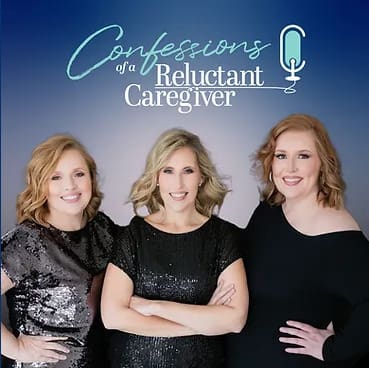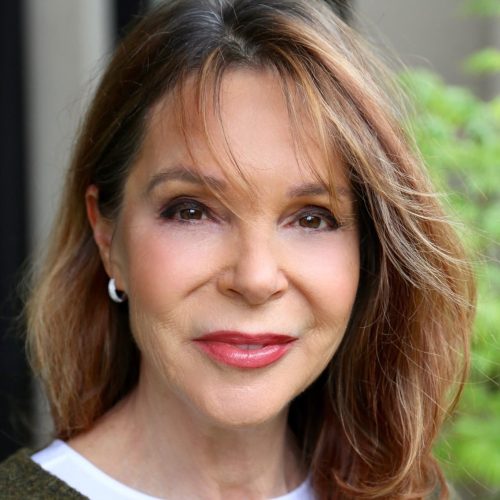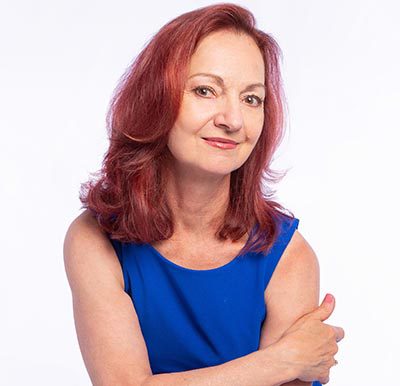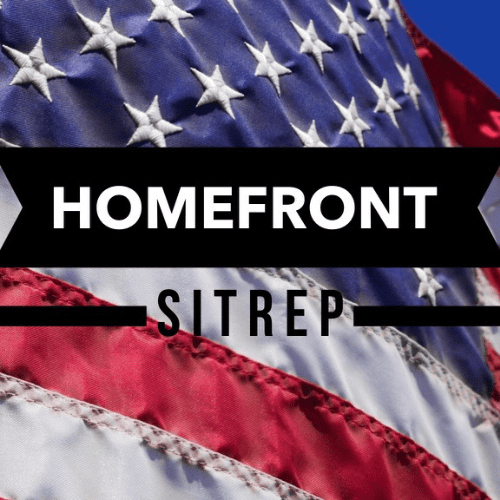

Barbara Karnes, RN Award Winning End of Life Educator, Award Winning Nurse, NHPCO Hospice Innovator Award Winner 2018 & 2015 International Humanitarian Woman of the Year
While at the bedside of hundreds of people during the dying process, Hospice Pioneer Barbara Karnes noticed that each death was following a near identical script. Each person was going through the stages of death in almost the same manner and most families came to her with similar questions. These realizations led Barbara to sit down and write Gone From My Sight, "The Little Blue Book" that changed the hospice industry.
Recent Content
Dear Barbara, as a hospice admission representative, what do I say to families who say they are “not ready” for hospice — even when they clearly are? There is an old saying "you can lead a horse…
Dear Barbara, as a h…
Dear Barbara, as a hospice admission representative, what do I say to families who say they are “not ready” for hospice — even when they clearly are? There is an old saying "you can lead a horse to water but you can't make him drink." I think that applies here. Our job is to explain hospice benefits and requirements, to explain that dying has a process, and that hospice can help during this challenging time. Part of "selling" hospice is to create trust and a bond during that first meeting. It takes people skills in addition to knowledge of hospice benefits. Bottom line is: provide …
Pets: dogs, cats, birds, horses, goats, hamsters, snakes, lizards, fish. I could go on and probably not cover all of the creatures that make it into our hearts and lives. For these we will grieve. Our…
Pets: dogs, cats, bi…
Pets: dogs, cats, birds, horses, goats, hamsters, snakes, lizards, fish. I could go on and probably not cover all of the creatures that make it into our hearts and lives. For these we will grieve. Our Grief will match the intensity of our connection to the animal. (I’m going to use the word animal but I am referring to all the creatures that enter our lives and take up residence in our hearts.) For some of us, our pets are our children. For some, they are our working companions. And for others, they are service animals or emotional support. Our grief for those that get into our lives and hea…
Someone asked me about deathbed rituals. They wanted to know what to say and do when someone is in the moments before death and what to do before the funeral home arrives. Here are my suggestions: In …
Someone asked me abo…
Someone asked me about deathbed rituals. They wanted to know what to say and do when someone is in the moments before death and what to do before the funeral home arrives. Here are my suggestions: In the hours to minutes before death, gather family and significant others. Encourage each person to spend some time alone with the person dying. This is the time to talk from the heart, to talk about the good and the challenging times, to speak of love and forgiveness. This is a private time. The person dying will be non responsive, breathing erratically, probably with their eyes partially open. I…
Dear Barbara, I am a hospice nurse advocate and working on an Education piece for hospice leadership. What is the average length of time you feel is appropriate for a comprehensive/quality Nursing vis…
Dear Barbara, I am a…
Dear Barbara, I am a hospice nurse advocate and working on an education piece for hospice leadership. What is the average length of time you feel is appropriate for a comprehensive/quality nursing visit that includes education and psychosocial support? This is such an important question, particularly today after all of the changes that have taken place in hospice over the years. Before I address time let me plant an idea: today, most hospices have an assessment nurse, an admitting nurse, and then a primary care nurse. This is WAY TOO MANY people for families to understand and bond with. Famili…
Dear Barbara, I have a patient talking to me about all the mistakes he’s made in his life. Regrets for doing things that he isn’t proud of. He was noticing that very few people had visited him. Wh…
Dear Barbara, I have…
Dear Barbara, I have a patient talking to me about all the mistakes he’s made in his life. Regrets for doing things that he isn’t proud of. He was noticing that very few people had visited him. What should I say? As end of life approaches, people start looking at their life; what they’ve accomplished, not done, who they have touched, interacted with, and the Relationships they have or have not built. Added to this reminiscing are the judgements they put on themselves about what they are remembering. Also add that as they assess their life, as most do as death approaches, they will assess…
I’m writing a book about the experiences I’ve had in working with end of life. What keeps appearing throughout the chapters is “over a cup of coffee” or “sitting at the kitchen table.” A…
I’m writing a book…
I’m writing a book about the experiences I’ve had in working with end of life. What keeps appearing throughout the chapters is “over a cup of coffee” or “sitting at the kitchen table.” A lot of time spent talking, becoming acquainted, and listening to life and relationship stories. We talk about living and their life, rather than about the disease or their symptoms. It got me thinking about how different end of life work is compared to regular medicine. All the hours of talking, drinking coffee, and eating homemade pies was time spent healing, building trust, and educating. It wa…
Taking care of someone as they approach the end of their life is hard, scary, frustrating, sad, and often guilt-ridden work. Caregivers carry the burden of care but are often invisible. We tend to giv…
Taking care of someo…
Taking care of someone as they approach the end of their life is hard, scary, frustrating, sad, and often guilt-ridden work. Caregivers carry the burden of care but are often invisible. We tend to give our attention to the patient by focusing on their wants, needs and changes. We come, often bringing gifts and food, and we sit with the patient. We talk, tell stories, try to laugh, then we say goodbye and leave. Meanwhile, the caregiver is behind the scenes doing all the work, receiving no attention, receiving no acknowledgment. My hope in writing this blog is to draw our attention to the “…
Dear Barbara, I need some advice. I am doing a patient evaluation and have been told not to use the word "hospice" with the patient. The primary care person doesn’t want the patient to know the ser…
Dear Barbara, I need…
Dear Barbara, I need some advice. I am doing a patient evaluation and have been told not to use the word "hospice" with the patient. The primary care person doesn’t want the patient to know the seriousness of their illness. I hear this way too often. I suppose the primary care person is trying to protect their special person. I believe everyone has the right to be told once that they can’t be fixed. It is the physician’s job to compassionately and honestly give that information. Then, if it is the person’s choice not to talk about it, so be it. BUT when family members try to protect t…
I had someone ask me "Why do all people with dementia feel someone is out to get them?" My answer—not all people with dementia feel or react like someone is out to get them. There is no one size fit…
I had someone ask me…
I had someone ask me "Why do all people with dementia feel someone is out to get them?" My answer—not all people with dementia feel or react like someone is out to get them. There is no one size fits all when it comes to dementia. Just like all human beings are different, so is each expression of dementia different. Dementia is not a disease in itself. It is a symptom and that symptom originates in many different diseases. Most diseases other than dementia follow consistent patterns and have particular treatment courses — a "take two and your headache will probably go away" kind of proto…
I had someone ask me "Why do all people with dementia feel someone is out to get them?" My answer—not all people with dementia feel or react like someone is out to get them. There is no one size fit…
I had someone ask me…
I had someone ask me "Why do all people with dementia feel someone is out to get them?" My answer—not all people with dementia feel or react like someone is out to get them. There is no one size fits all when it comes to dementia. Just like all human beings are different, so is each expression of dementia different. Dementia is not a disease in itself. It is a symptom and that symptom originates in many different diseases. Most diseases other than dementia follow consistent patterns and have particular treatment courses — a "take two and your headache will probably go away" kind of proto…
I get emails weekly from upset caregivers and family members who had hospice services. Now that mom is dead they are angry with hospice. It is the hospice's fault that mom died. "Hospice killed my mom…
I get emails weekly …
I get emails weekly from upset caregivers and family members who had hospice services. Now that mom is dead they are angry with hospice. It is the hospice's fault that mom died. "Hospice killed my mom." My first response is that hospice did not educate enough, interact with caregivers enough, teach enough — and that is partially true. Time spent with families talking and teaching brings a better understanding of what is happening and what will happen. Education is 90% of what we do when working with end of life situations. When we explain before death approaches and, if you can be present, …
It used to be that end of life workers came to the career because something deep within said, “this is the work for you.” Today, with hospice being a big business rather than a heart-driven moveme…
It used to be that e…
It used to be that end of life workers came to the career because something deep within said, “this is the work for you.” Today, with hospice being a big business rather than a heart-driven movement, employees often enter the field because it is a job. I’m not saying this is ALL hospice employees. I am saying that as hospice has grown, now having a larger census, the Employment arena has expanded and is now taking employees directly from the medical model. For many, hospice is a job, whereas it used to be an avocation. Taking care of someone who is at the end of life is different from ta…
To my fellow widows and widowers - well, actually to anyone. I think a big part of grieving is loneliness. Loneliness from our person having left us, but also aloneness in our day to day activities. M…
To my fellow widows …
To my fellow widows and widowers - well, actually to anyone. I think a big part of grieving is loneliness. Loneliness from our person having left us, but also aloneness in our day to day activities. Monday through Friday, I have people coming in and out of my life. I talk with others, interact with others; BUT on the weekends there is just Baxter cat and me – and he isn’t much of a conversationalist. Weekends bring me a quiet house. Right now there are no sounds other than my footsteps on the floor, my neighbor’s lawn mower, and my touching the keys as I type this. No shuffling in the ba…
We are born, we experience and then we die. There are a lot of emotions when we are born (joy, anticipation, pride, throw in some fear but not too much). All of these emotions are experienced by those…
We are born, we expe…
We are born, we experience and then we die. There are a lot of emotions when we are born (joy, anticipation, pride, throw in some fear but not too much). All of these emotions are experienced by those around us. We, the newborn, are busy adjusting to this new way of living. There are a lot of emotions when we are dying (frustration, regret, sadness, and again fear, but more fear than when we arrived). During the days, hours and minutes preceding death, again the activity is centered on others. We are busy assessing our lives and how we spent our time here living. The space between birth and de…
Denial. Denial by the person with a life threatening illness, denial by the caregiver, and I’ll even add denial by some attending physicians. Denial is often the reaction to diseases that have reac…
Denial. Denial by t…
Denial. Denial by the person with a life threatening illness, denial by the caregiver, and I’ll even add denial by some attending physicians. Denial is often the reaction to diseases that have reached the point of not being fixable. It can’t be me. It can’t be my special person. The doctors are wrong. If we do everything the physician recommends, we’ll be fine. If we do all the “right things” (eating, exercising, not smoking, not drinking alcohol, praying) everything will be okay. AND if the doctors are right in saying the disease isn’t fixable, then there will be a miracle and …
We who work in end of life situations take care of the patient and the caregiver/ family. As end of life approaches, our attention and interactions revolve around the family/ caregiver as much as the…
We who work in end o…
We who work in end of life situations take care of the patient and the caregiver/ family. As end of life approaches, our attention and interactions revolve around the family/ caregiver as much as the patient. Our work involves creating trust with all involved as quickly as possible. End of life work is time sensitive. We who serve need to establish a bond and trust by the end of our first visit. Time is the enemy here. Sensitive information, scary information, heart wrenching information will be shared and given. How do we get beyond the social conventions of strangers meeting and getting to …
There seems to be some confusion about advance directives and POLST forms (Physician Orders for Life Saving Treatment). Both are very important if you want to have input in your end of life decisions…
There seems to be so…
There seems to be some confusion about advance directives and POLST forms (Physician Orders for Life Saving Treatment). Both are very important if you want to have input in your end of life decisions. So -- here is what you need to know. Advance directives are legal documents that provide instructions for medical care. They only go into effect if you cannot communicate your own wishes. The two most common advance directives for healthcare are a living will and a durable medical power of attorney. A POLST is a set of portable medical orders prepared together with your doctor who will sign it…
“You often can’t see the forest for the trees” is one of the many things I learned being a caregiver. Now, months after my husband’s death, I have been thinking, “Barbara, you know the signs…
“You often can’t…
“You often can’t see the forest for the trees” is one of the many things I learned being a caregiver. Now, months after my husband’s death, I have been thinking, “Barbara, you know the signs of approaching death. Signs of months, weeks, days, and hours. How did you not see them with your own husband?” Because I was emotionally involved, because I was tired and scared and sad. Because my fix-it personality was in full operation. I knew what to look for but I didn’t want to see, so I didn’t. Yes, I think denial plays a big part in our Caregiving. If I just do everything right (fo…























